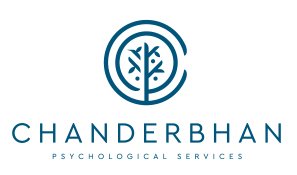How are Anxiety and Depression Related?
Anxiety and depression are two of the most common mental health conditions, but they have a few major differences. Depression is a feeling of extreme sadness, while anxiety disorders are centered on thoughts of worry and sensations of fear.
Just because there are differences, however, doesn’t mean that the two conditions aren’t related.
In fact, they can be connected, with one condition exacerbating the other. While someone with anxiety doesn’t necessarily have to develop depression (or vice versa), the two are more intertwined than you might think.
Let’s take a look at the relationship between anxiety and depression.
What Causes Anxiety?
To first understand the relationship between anxiety and depression, it’s important to know the common cause(s) of each condition. The easiest way to describe the cause of anxiety is to say that it’s a condition that causes the brain’s fight-or-flight response to work on overdrive.
People with anxiety often perceive threats almost constantly or their fear is out of scale to the magnitude of the threat. They feel like there is an imminent danger when there isn’t. Everyone gets scared from time to time, but the fear caused by anxiety isn’t temporary and can be crippling. In some cases, the fear can be so extreme that it interferes with everyday life.
Aside from the sensation of anxiousness, anxiety typically manifests itself in three notable ways: 1) physical or bodily symptoms (e.g., upset stomach), 2) anxious cognitions (often excessive worry), and 3) behavior, typically avoiding what is feared. Avoidance can take the form of avoiding something that’s anxiety-provoking, like a social situation. But it can also look like procrastination, avoiding tasks that we associate with feeling anxious.
It’s important to understand that for some people anxiety can largely manifest as worry and these people often do not realize they struggle with anxiety. They will typically view themselves as someone who likes to be prepared for the worst and see their excessive worry as functional and helpful. Though their excessive worry may prove helpful in some areas of life, it ultimately takes a toll on their emotional well-being and their relationships.
As for what actually causes anxiety, it’s different for everyone. We know that genetics plays a role. For instance, iIf you have a parent with anxiety, you have a higher likelihood of developing an anxiety disorder. Adverse early experiences like traumatic experiences can also contribute to the development of anxiety.
What Causes Depression?
Like anxiety, depression is often caused by a combination of genetic and psychological factors, as well as environmental ones. Early adverse experiences, particularly the experience of uncontrollable stressors can play a role in the development of depression. Some people experience a first depressive episode in the wake of an interpersonal loss like a death or the end of a significant relationship.
Adult depression can manifest from a low mood to feelings of extreme sadness, hopelessness. In males, depression often manifests as anger or irritability. So, what does that have to do with anxiety?
Sometimes, people with anxiety disorders can end up developing depression. They’re so fearful all the time that they begin to lose hope or believe that life isn’t really worth living. Or, if their anxiety leads them to attempt to control many aspects of their lives, experiencing a situation that feels uncontrollable can lead to the onset of a depressive episode.
Signs of Both Conditions
Some of the common symptoms of depression and anxiety naturally overlap. Again, you can have one condition without the other. But, it’s important to understand some prominent signs that you might be dealing with both at once. Some of those signs include:
Physical symptoms including fatigue or aches and pains
Irrational worries
Changes in sleeping or eating habits
Feeling worthless
Extreme sadness
The sense of losing control
Finding it impossible to relax
Obviously, dealing with even one of these symptoms can wreak havoc on your life. But, the longer you let these conditions go untreated, the more they’ll feed each other, and things will likely get worse.
What Should You Do?
The good news is that anxiety and depression are often very manageable conditions. But they’re also difficult to treat on your own.
One of the best things you can do is receive a mental health diagnosis from a trained professional. It’s just as important to get a proper mental diagnosis as it is a physical one. Once you know exactly what you’re dealing with, you can work with a therapist to come up with a specific treatment plan that meets your needs.
A trained therapist can help guide you through learning new skills and perspectives to help you manage your anxiety and depression. Ultimately, whether you’re dealing with anxiety, depression, or both, your life doesn’t have to be controlled by these conditions.
Chanderbhan Psychological Services
About: Chanderbhan Psychological Services is a therapy practice located in Laredo, Texas. We help individuals and couples who are struggling in different areas of their lives gain the clarity they need to grow and change. We also offer telehealth to individuals located in the wider State of Texas. To read blogs on mental health and relationships, visit our website.



